Home > About OSBP
ABOUT US
Trade and Markets Africa (TradeMark Africa – TMA) is an African not-for profit Company Limited by Guarantee established in 2010 to support the growth of trade – both regional and international – in Africa. TradeMark Africa (TMA) is focused on ensuring gains from trade result in tangible gains for Africans.
INCREASED PHYSICAL ACCESS TO MARKETS
By market access, TradeMark Africa (TMA) refers to the physical access of goods to markets, i.e. transport. The cost of this access is a component of the cost of the goods. Transport costs in Africa (direct and indirect) are among the highest in the world. As a result, goods are more expensive for Africans and less competitive for world markets. One key factor contributing to high transport costs is inadequate infrastructure that does not meet current and future traffic needs, resulting in congestion and delay. This delay has a cost. Even where the transport infrastructure is adequate, delay can result from inefficient use of assets. Key causes of unnecessary delay include low labour productivity, bureaucratic inefficiency, poor transport regulation, and corruption. Reducing such delays (whether due to inadequate infrastructure, inefficient use of that infrastructure, or poor transport policy) will reduce the cost of transport and thus increase the physical access of goods to markets, and therefore trade.
For these reasons, most of TradeMark Africa (TMA)’s activities in this area are designed to reduce unnecessary delay. Yet for our activities to actually have the intended outcome, certain assumptions must hold:
The activities must actually result in time savings (delay reductions).
The value of those time savings must be greater than the cost required to achieve those savings.
The net savings must be passed along from transport services providers to consumers via the price of transported goods.
The resulting price reductions must induce additional trade in those goods (that is, the demand curve must be elastic).
ONE STOP BORDER POST
One stop border posts (OSBPs) are examples of projects under this pillar. The aim of OSBP joint processing is to reduce transit costs incurred in cross border movement by combining the activities of both country’s border organizations and agencies at either a single common location or at a single location in each direction without increasing risk to public safety or revenue collection.
TMA will do this by conducting infrastructure audits and needs assessment to determine what causes delays at borders and identify ways of reducing cost and time elements by enhancing the use of IT. Through mapping the process and time from when trucks and people arrive at borders and when they exit, including all requirements they must comply with under law, TMA will then work with architects to design infrastructure which will simplify processes and procedures.
TMA is working on 13 OSBPs across Africa. Construction for 10 out of the 13 OSBPs is complete and related integrated border management (IBM) arrangements are operational. The first “time and traffic” surveys for the completed OSBPs have been undertaken, and results for Taveta/Holili and Mirama Hills/Kagitumba have been validated.

